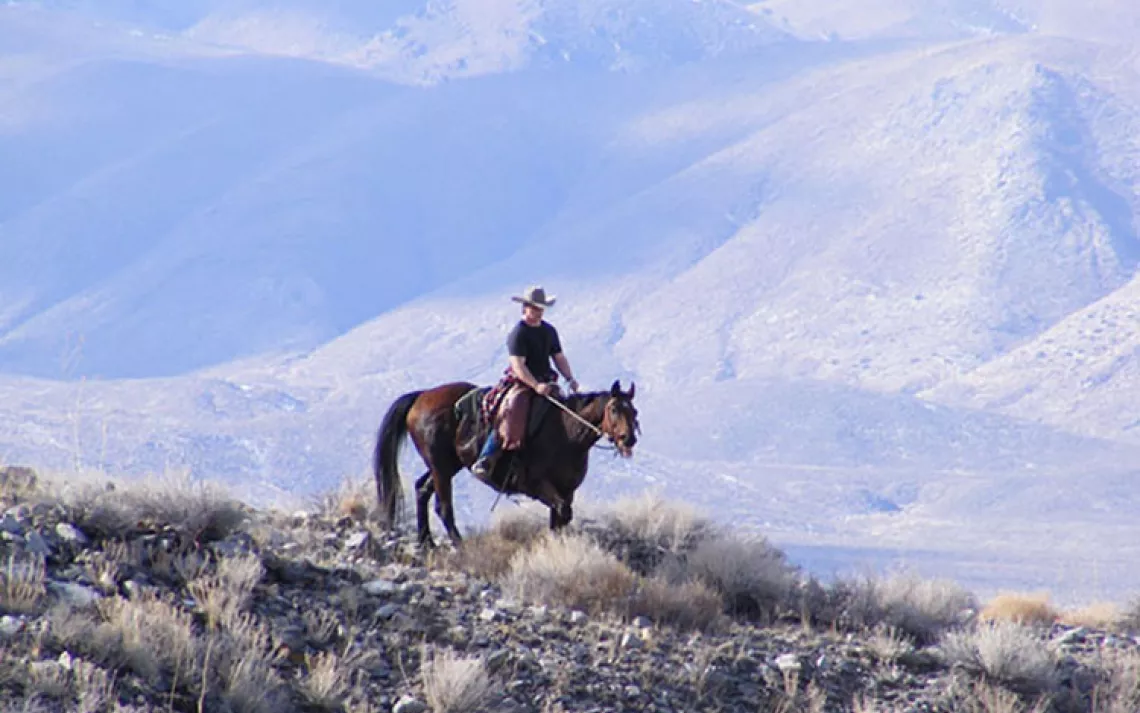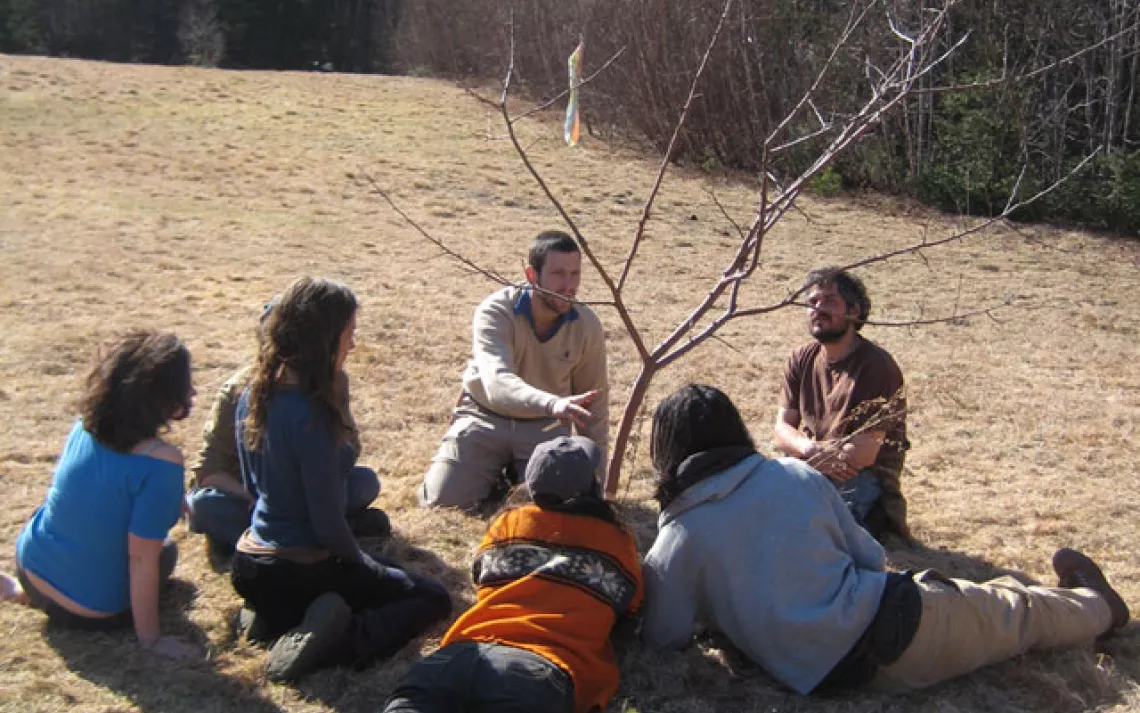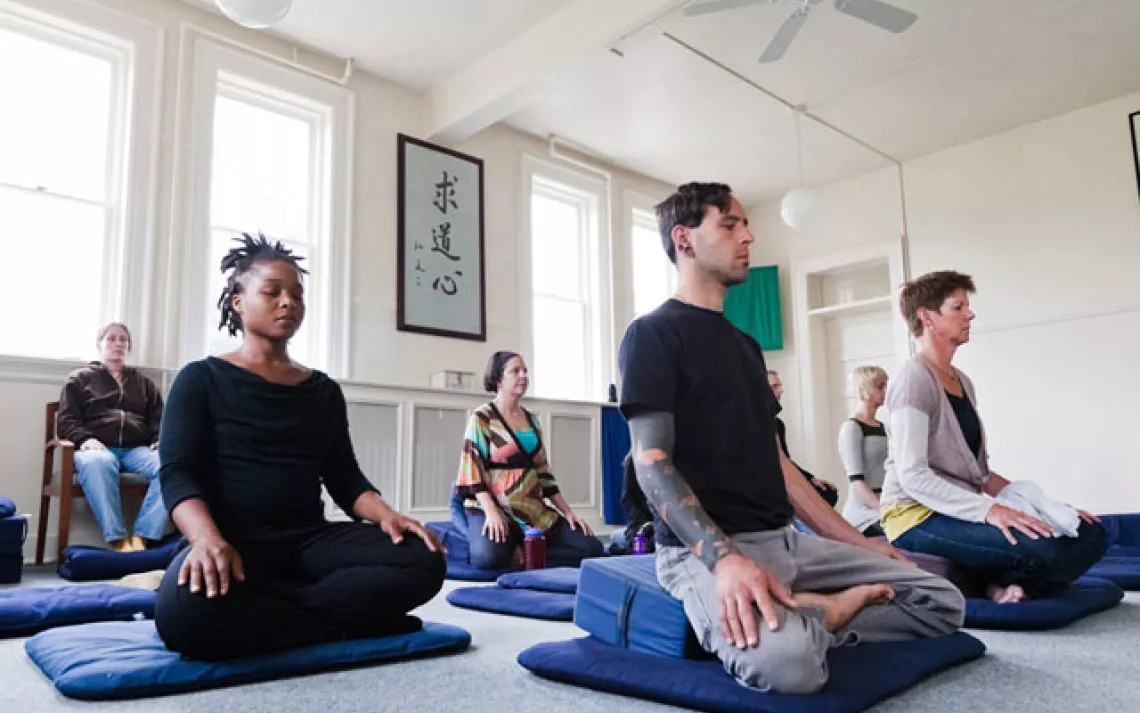The Nonconformist Class
Going green may finally be "normal," but some schools with eco-agendas remain miles from mainstream

Maharishi University of Management
Maharishi University of Management
The Beatles' onetime spiritual adviser, the late Maharishi Mahesh Yogi (sometimes called the "giggling guru"), founded Maharishi University of Management, in Fairfield, Iowa, as a place for "consciousness-based education." The school's buildings face east and have a central nucleus, and rooms are aligned with the sun's movement according to the strictures of an ancient Indian architectural style. The first U.S. university to offer a four-year degree in sustainable living, MUM balances modern clean technology and 5,000-year-old Vedic philosophy based on Sanskrit texts.
The dining hall serves food that's entirely vegetarian and organic. To graduate, each student is required to have maintained a plot on the campus's farm. Above, students celebrate the completion of their permaculture class with a feast made of ingredients harvested from their gardens.
Attending to the earth is hardwired into the school's signature (and trademarked!) practice, Transcendental Meditation. From it, says Robbie Gongwer, the program developer for MUM's Sustainable Living Center, "students get this subjective experience of an interconnectedness to life."
Deep Springs College

At most colleges, "manual labor" means taking notes in class by hand. But Deep Springs, on an isolated California ranch not far from Yosemite, was founded on the principle that the best way to learn how to care for the land is to get your hands dirty working it. Forget about plopping down on the couch after a lecture: For the school's 25 students, there's alfalfa to be baled, cattle to be managed, and range to be ridden. "What would be considered work for a hired hand anywhere else, here it's considered part of their overall educational program," says David Welle, the school's vice president.
The administration has shied away from highfalutin green technology like Energy Star appliances, so students set up the solar panels and hydroelectric generator from which the institution draws 80 percent of its energy. Some attendees stay behind after the two-year academic program to serve as full-time "student cowboys." Above, Don Bickmann, class of 2007, herds cattle in Deep Springs Valley.
Gaia University

Ask about the physical infrastructure of this self-described "un-institution," and prepare to be laughed at — it doesn't exist. "You need to let go of all your ideas of conventional universities," said cofounder Liora Adler. With no real campus (though its offices are in Tepoztlán, Mexico), no majors, and only a handful of scheduled classes, Gaia's take on sustainability calls for a wholesale redesigning of higher education. Adler asks, "Why would you have to go green in the first place if you didn't have an unsustainable system?"
Students earn degrees by documenting a project that involves an envy-inducing combination of world travel and social activism. A recent graduate flew to Chile and, between surfing trips, shot a documentary about how a proposed coal plant would upend a beachfront market town. So how does this merit an accredited bachelor's degree? The idea is that the projects force students to acquire skills and knowledge (grant writing, Spanish, economics, filmmaking, and so on) as they're needed, obviating, according to Adler, the entirety of some other universities' academic curricula.
Naropa University

You'd think that a school grounded in Buddhism would find it easy to harmonize with nature. Not always, said graduate student Nathaniel Janowitz. The school's Green Team, which he chairs, recently tried to rid Naropa's Boulder, Colorado, campus (home to the Jack Kerouac School of Disembodied Poetics) of bottled water. The effort was met with resistance by other students who felt that calling bottled water "bad" went against the Buddhist principle of nondualism, which rejects right-wrong distinctions.
Still, Janowitz said, Buddhism encourages compassion, which aligns naturally with the environmental movement. "When you're trying to lead a sustainable life, you're trying to find a way to have as little an impact on everything else as possible, and that's a very compassionate thing to do," he said. "We'll do meditations related to connecting to the earth, and just connecting to that connection, if that makes sense." With a nod to nondualism, we'll reserve further comment.
 The Magazine of The Sierra Club
The Magazine of The Sierra Club



